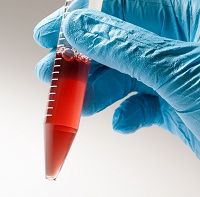Article
Gene Mutation Could Help Cushing's Syndrome Diagnosis
Author(s):
The identification of a gene mutation could provide an added boost to the research into treatments for conditions like Cushing's syndrome, according to a recent European study.

The identification of a gene mutation could provide an added boost to the research into treatments for conditions like Cushing’s syndrome, according to a recent European study.
According to researchers at the Luxembourg Centre for Systems Biomedicine, mutations in the ARMC5 gene “promote the growth of benign tumours in the adrenal glands and on the meninges.” The statement noted that the identified mutation is “the first time in years that scientists have characterized such a gene.”
The gene identification was part of a larger effort by researchers to study benign tumors. Patients with Cushing’s are known to produce too much cortisol and it is believed that this gene mutation is at least part of the reason for that overproduction.
For most people cortisol is a key hormone in the body’s metabolic process and also is involved in the immune system. Too much of the hormone, however, can lead to a number of health issues including obesity, muscular dystrophy and depression among others.
“What is interesting is that the failure of ARMC5 has no direct influence on cortisol production,” the authors noted. “However, because the tumour cells multiply faster than other body cells, and the number of cells in the tumor increases, the blood cortisol level rises in the course of the disease.” As the cortisol rises the end result for many patients is a diagnosis of Cushing’s syndrome.
The initial research into ARMC5 was followed by initial studies which also provided unique insights into the mutation.
“We demonstrated for the first time, in a patient with an adrenal cortex tumour and simultaneously a meningeal tumour, that somatic, that is non-hereditary, ARMC5 mutations are present in both tumours,” said Patrick May and Jochen Schneider. “This observation suggests that ARMC5 is a true tumour-suppressor gene.”
Schneider added that as a result of this work more studies should be done about the presence of meningioma and other tumor types linked to ARMC5 mutations. “Building on that, we can learn whether the gene and the metabolic pathways it influences offer new approaches for treating the tumour syndrome.”




